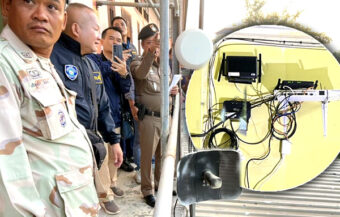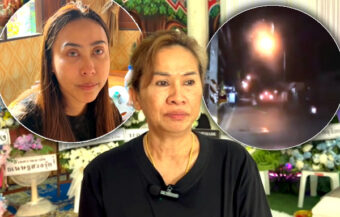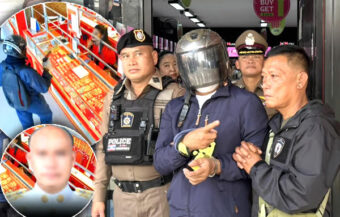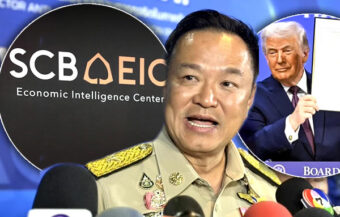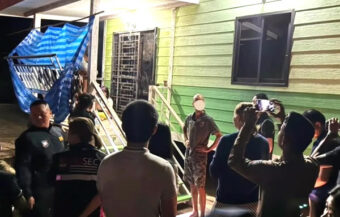Trump targets Cambodia in sweeping travel ban expansion. Citizens have 60 days to meet U.S. security demands or face visa suspensions. Critics warn of family separations, strained diplomacy and rising anti-American sentiment across affected nations.
The Trump administration is set to expand its travel ban, with Cambodia among the countries being targeted. Under the new measure, affected nations will have 60 days to respond and improve security conditions within their borders. Laos and Myanmar have already been placed on a list of countries subject to U.S. travel restrictions as of June 9. The travel ban is linked to concerns about criminal activity and inadequate border security in the listed nations. The initiative is being presented by the United States as a means of enhancing national security and protecting American citizens. However, it has been met with strong criticism and opposition from U.S. Democrats and civil rights organizations.
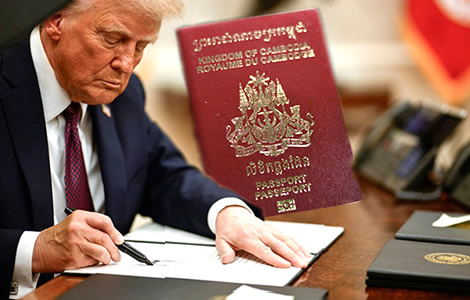
The Trump administration is considering a major expansion of its travel restriction policy. Cambodia is one of 36 countries that could soon face new U.S. travel limits, according to a report by The Washington Post. If implemented, the move would restrict or suspend entry of Cambodian nationals into the United States.
An internal diplomatic cable reportedly details the proposed plan. It was signed by U.S. Secretary of State Marco Rubio and sent to embassies over the weekend. The cable lists several concerns about the 36 countries under review. These include poor control over civil documentation, high visa overstay rates and alleged fraud in citizenship schemes.
Importantly, the cable gives each listed country a 60-day deadline to improve. If they fail, they could face full or partial travel suspensions.
New travel restriction list expands to 36 countries and sets a strict 60-day deadline for security compliance
In addition to Cambodia, the list includes Angola, Ethiopia, Ghana, Syria, and Tanzania. Other countries span Africa, Asia and the Pacific region.
This would mark a sharp increase from previous restrictions. Earlier in June, the U.S. implemented travel limits affecting 15 countries. Those included Myanmar and Laos. The new list more than doubles that number.
The Trump administration said these steps are meant to enhance national security. Officials argue that better vetting and cooperation are essential to prevent threats. Therefore, countries that fail to cooperate could face serious consequences.
Cambodia, however, has long-standing ties with the United States. Thousands of Cambodians travel to the U.S. every year for work, education, or family visits. Thus, the possibility of being blacklisted has sparked concern among Cambodian officials and citizens alike.
Moreover, the proposed policy is part of a broader crackdown on foreign nationals. On June 9, a separate executive order came into effect. It bars entry to citizens of 12 specific countries. These include Afghanistan, Myanmar, Chad, Congo-Brazzaville, Equatorial Guinea, Eritrea, Haiti, Iran, Libya, Somalia, Sudan, and Yemen.
Broader crackdown already blocks 12 countries and alarms Cambodian citizens and international students
Additionally, nationals of seven more countries now face partial travel restrictions. These include Burundi, Cuba, Laos, Sierra Leone, Togo, Turkmenistan, and Venezuela.
Despite these broad restrictions, there are exceptions. The order does not apply to lawful permanent U.S. residents. Immediate family members with immigrant visas are also exempt. So are U.S. government employees with Special Immigrant Visas.
There are further exceptions for adopted children and dual nationals. The travel restrictions do not apply to dual citizens travelling on a passport from a non-listed country. Afghan nationals with Special Immigrant Visas are also exempt.
Furthermore, some exceptions apply to persecuted minorities. For instance, Iranians facing religious or ethnic persecution may still qualify for entry. Athletes, their teams, coaches, and support staff travelling for major sporting events are also exempt. This includes upcoming events like the 2026 FIFA World Cup and the 2028 Summer Olympics in Los Angeles.
Exemptions include permanent residents, athletes and persecuted minorities from some listed countries
In addition, the U.S. Secretary of State retains discretionary authority. Rubio may grant exemptions on a case-by-case basis. These will apply if the individual’s presence serves the U.S. national interest.
The expanded restrictions come amid heightened political rhetoric. Last week, Trump posted a video on Truth Social defending his policy. He referred to a recent attack in Boulder, Colorado, to justify the need for stronger vetting. On June 1, a man attacked a crowd supporting Israeli hostages. Twelve people were injured in the incident, which involved a homemade flamethrower and Molotov cocktails.
The suspect was later identified as an Egyptian national. Yet, Egypt has not been added to the banned list. Still, the case has fueled calls from Trump and his supporters for stricter immigration controls.
Trump said, “The attack underscores the extreme dangers of allowing unvetted foreign nationals into the country.” He argued that his travel ban is a common-sense measure to protect Americans.
Trump cites Colorado attack as justification but omits suspect’s country from the restricted travel list
Nevertheless, the policy has sparked backlash both at home and abroad. In the U.S., Democratic lawmakers criticized the move as xenophobic and counterproductive. Congresswoman Pramila Jayapal called it “an expanded version of Trump’s Muslim ban.”
Meanwhile, the international response has been mixed. Chad responded by suspending all visa services to U.S. citizens. Somalia, in contrast, pledged to improve security cooperation with Washington.
The African Union issued a statement urging constructive dialogue. The organization called on the U.S. to engage with affected nations in good faith. It warned that unilateral action would only damage relations and isolate America.
In Southeast Asia, governments are watching closely. Cambodia’s inclusion on the potential blacklist has caused alarm in Phnom Penh. Officials fear the move could harm bilateral ties, trade and educational exchanges.
U.S. faces global criticism as African Union and Cambodia warn of lasting damage to diplomacy
Cambodian civil society groups have also voiced concern. Many fear the decision would separate families or block students from attending U.S. universities. Others warn that the measure could increase anti-American sentiment in the region.
Despite the backlash, Trump officials show no signs of backing down. They argue that only countries meeting U.S. benchmarks will avoid restrictions. The benchmarks include accepting deportees, sharing security data, and improving document security.
The State Department has emphasized that the ban is not permanent. According to the cable, countries that make “material improvements” could be removed from the list. However, new countries may be added if “new threats emerge around the world.”
Cambodian civil groups warn of family separations and anti-U.S. sentiment as benchmarks are enforced
This is the second time President Trump has enacted such a sweeping travel order. A similar executive action in 2017, early in his first term, drew legal challenges and public protests. This latest move is also expected to be contested in court.
Still, supporters say it reflects a tough-on-immigration stance. Congressman Clay Higgins of Louisiana defended the move. He said, “Travel to the U.S. is a privilege, not a right.”
Thai-Cambodian border tensions left unresolved. Conflict is still on the table as visa periods for nationals are cut
Cambodian cybercrime industry run by Chinese criminals could be generating up to 38% of its GDP
Hun Sen warns Jatuporn: ‘You know how capable I am’ in sinister message as formal relationship plummets
For now, Cambodia and the other 35 countries face a critical deadline. Unless they meet U.S. requirements within 60 days, travel for their citizens may be significantly restricted. As the clock ticks, the fate of thousands of potential travellers remains uncertain.
Whether the policy improves security or deepens global divisions remains to be seen. But the consequences—for Cambodia and many others—could be significant.


